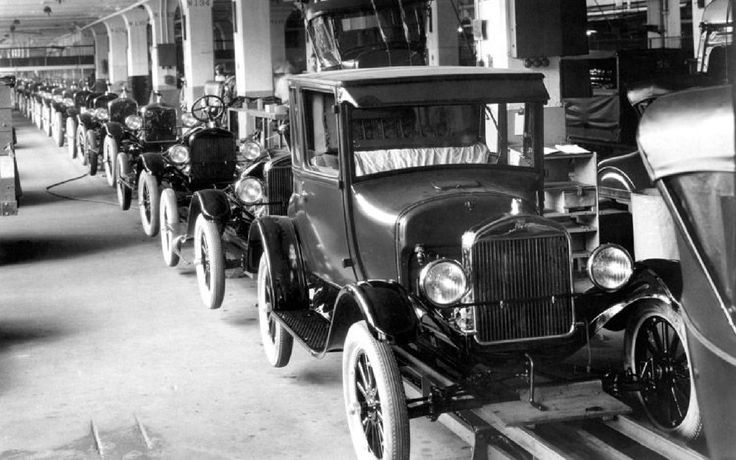Posts Tagged ‘automobile’

1. Introduction Fordism can be defined as “a set of principles that includes technological measures, especially mass production on the assembly line, as well as economic strategies such as supporting mass consumption by lowering prices and increasing wages”[1]. The term is coined by Antonio Gramsci after the name of Henri Ford, a famous US industrialist and the founder of Ford Motor Company. The concept of Fordism has developed starting from 1910’s to reach its peak in the period between 1940’s to 1960’s. Fordism is closely associated with the notions of mass production and consumption. Prior to mass production assembly lines introduced initially in Ford factories, products were manufactured with the method of craft production, which involved the same workers being engaged in the many stages of manufacturing processes. The consumption point of Fordism stems from Henri Ford’s belief that company employees need to be able to purchase cars produced by Ford, thus the level of their wages were increased. Thus, it can be reasoned that “Model T, sold in millions, can be viewed as the herald of consumerism, the new phase in human history when consumption came to be seen no just as the means of survival but as the true path to the good and happy life”[2]. This article represents a critical evaluation of the concept of ‘Fordism’ within the settings of international political economy a range of related issues. The article starts with discussions about the evolution of Fordism. This is followed by critical assessment of the concept within modern international political economy. Moreover, the article contains a reflection of criticism associated with Fordism and analysis of circumstances that enabled emergence of Neo-Fordism. 2. Evolution of Fordism It has been argued that Fordist method of mass production primarily owes to the teachings of Taylorism, which has created…
